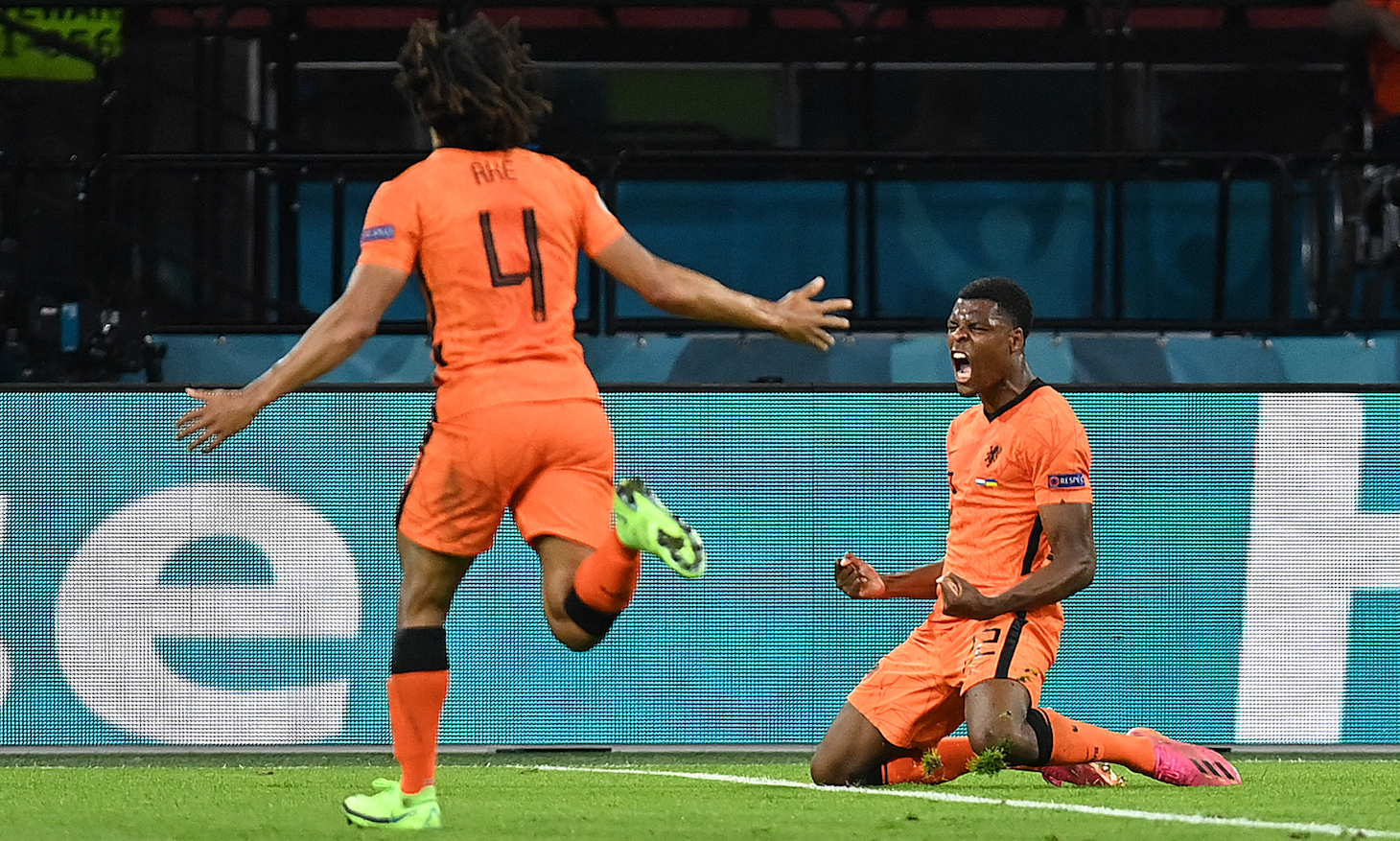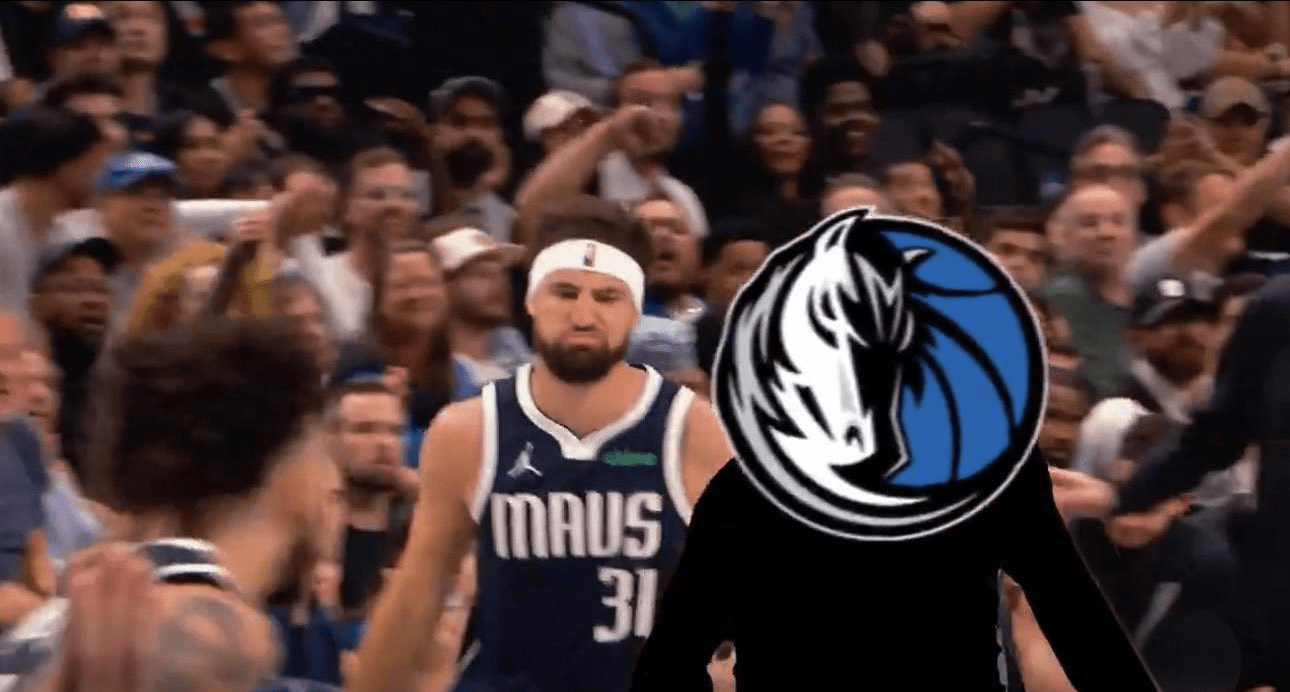In a newly resurgent Netherlands team replete with bona fide stars like Georginio Wijnaldum, Frenkie De Jong, and Memphis Depay, arguably the very last Dutch starter you'd expect to dominate a match in these Euros is right back Denzel Dumfries. And yet dominate Dumfries did in the Oranje's tournament-opening match, completely tearing apart Ukraine's left flank and creating all of his team's goals in the 3–2 victory. Dumfries's colossal performance, which featured both his at times unstoppable abilities and also his glaring limitations, simultaneously demonstrated why he's such a good player, why he's nowhere near the Netherlands' best, and why sometimes you don't need to be the best to be the best.
Dumfries flat-out flayed Ukraine's left back, Vitaliy Mykolenko, practically every time he got on the ball. Dumfries is big, strong, and super fast, and his physical prowess completely overwhelmed Mykolenko—who, in his partial defense, was left completely out to dry by his left-sided wingman, Marlos, who had to be subbed off after getting subbed on because of how thoroughly Dumfries was smashing his side of the field. When in search of an advantage, all the Netherlands had to do was lump the ball over to Dumfries, and danger would automatically result. His powerful running and keen sense of timing and space, which he used to determine the perfect moment and movement for his cutting runs, regularly led to fantastic scoring opportunities for his teammates and himself. Both of the goals that gave Holland its 2–0 lead early in the second half were the direct results of Dumfries's work, and it was Dumfries himself who headed in the late winner after Ukraine had fought back to level the match.
Now, at the same time as the 25-year-old wing back was putting all his physical and space-reading skills to great use, his technical shortcomings were doing their best to thwart all his good work. Dumfries, you see, is far from a wizard of technique. His control of the ball is pretty erratic, he doesn't have great touch with his passes and crosses, and with the ball at his feet he gets himself into trouble when trying to do much more than running straight ahead. In the Ukraine game, Dumfries's first touches were bumpy, his passing fairly useless, and even when granted plenty of time and space, (unless he received the ball while already on the move), he couldn't take much advantage of all the room around him. We can put aside his blowing of two golden opportunities to score in the first half—even on the two goals he created for others, he came extremely close to screwing everything up.
The rebound that kindly fell to Wijnaldum for the opener only happened because Dumfries's cross, with two wide-open teammates flying into the box, wasn't good and couldn't find either of its two potential targets. And the loose ball that Wout Weghorst slammed home was only loose because moments earlier Dumfries had taken a poor first touch that was too poor for him to wrangle but, luckily, not poor enough for the Ukrainian defender to easily clear away. It would be silly to criticize the most dangerous player on the pitch for not being literally perfect, but also it would be an inaccurate reflection of who Dumfries is as a player to focus solely on the prodigious talents when his sizable weaknesses were just as evident.
If anything, Dumfries's performance testifies to one of the things that makes soccer so great. Dumfries is not perfect, and he's not even one of the Netherlands' seven or eight best players, and the skills he lacks can at times undermine all the ones he does have. In spite of this, Dumfries, his teammates, and his coach were able to overcome his limitations to maximize his strengths, in doing so turning a good-but-flawed player at one of the game's least impactful positions into a one-man wrecking crew. Sometimes, it's what someone can't do that makes what they can all the more impressive.





